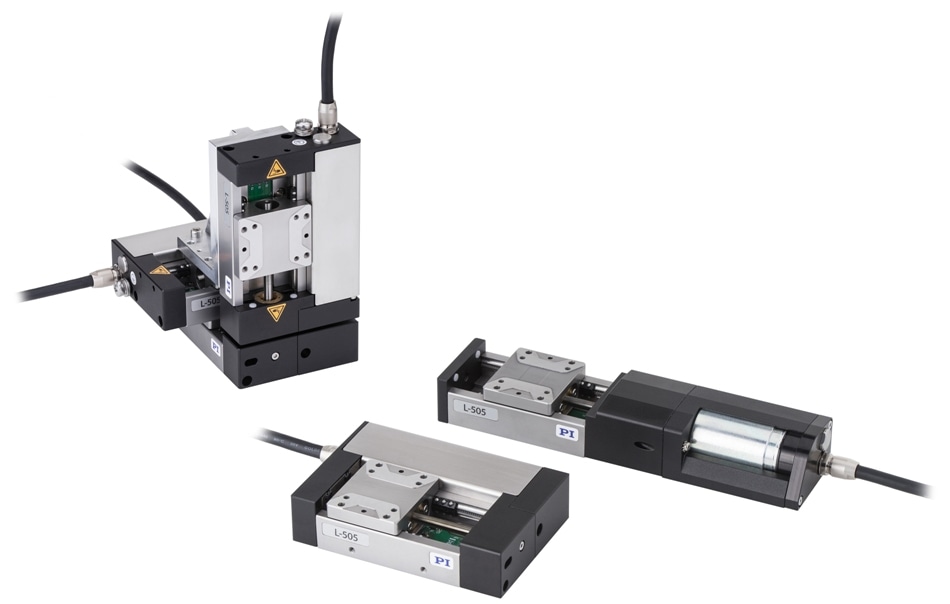The new linear stages in the L-505 series from PI (Physik Instrumente) offer precision and high load capacity on a compact installation space. This opens up new possibilities for positioning tasks in industrial environments.
 New linear stages of the L-505 series offer precision and high load capacity on compact installation space and, depending on the application, can be combined to XY or XYZ stacks. (Image Credit: PI (Physik Instrumente))
New linear stages of the L-505 series offer precision and high load capacity on compact installation space and, depending on the application, can be combined to XY or XYZ stacks. (Image Credit: PI (Physik Instrumente))
Positioning systems that not only work very precisely but that are also suitable for higher loads while requiring little installation space are sought after in medical technology, biomedical engineering, or when aligning components in the laser and photonics industries, in micro assembly, and even when handling parts in industrial automation.
With the L-505 series, PI now has compact linear stages in its portfolio that can be loaded to 30 N and that are available in two space-saving dimensions: A 36 mm narrow, elongated version with direct fixed drive and a 60 mm wide, shorter version with folded drivetrain.
These compact linear stages are offered either with a DC motor or a stepper motor and with or without gearhead: The ball screw ensures an optimized continuous operation at higher speed for the folded DC versions without gearhead. In addition, play and stick-slip effects are avoided. The versions with gearhead are suitable for applications with high loads and lower speeds.
Since the guide rails of the preloaded, four-row ball guides of the series are directly cut into the base body and into the motion platform, they achieve high load capacity and high stiffness while providing a smooth and even running.
The linear stages of the L-505 series work with travel ranges of 13 or 26 mm, reach velocities up to 15 mm/s, and offer a bidirectional repeatability up to +-0.15 µm. Reference and limit switches are designed as Hall sensors. The DC versions have an incremental optical linear encoder as standard, while for the stepper motor versions this is optionally available. The linear encoders measure the position directly at the platform; nonlinearity, mechanical play, or elastic deformation have, therefore, no influence on position measuring.
If required, it is easily possible to combine the linear stages to XY or XYZ stacks.